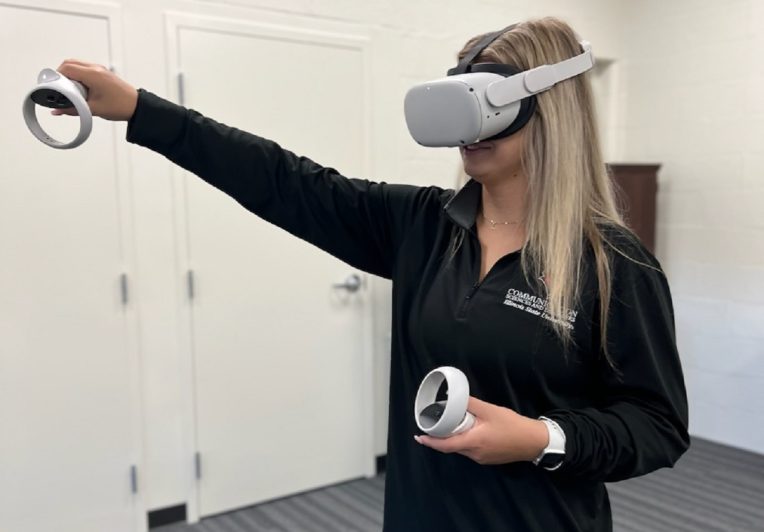For the past three years, Dr. Jennine Harvey, Dr. Isaac Chang, Dr. Megan Cuellar, and Dr. Gabriela Fonseca Pereira have investigated the efficacy of virtual reality environments for speech-language pathology intervention. This interdisciplinary team has developed a real-world virtual environment to examine the potential of VR technology and innovative applications in evidence-based practice in SLP intervention, clinical training, and pedagogy.
Researchers are now beginning phase two of data collection, studying the impact of these interventions for persons with communication disorders. Specifically, people 18 years old and older with aphasia, mild cognitive impairment, traumatic brain injury, stuttering, and voice disorders, as well as individuals 18-30 and 55+ years old with normal cognitive aging.
While researchers have found utility in VR technology for individuals with communication disorders, including populations with aphasia (Galliers, et al., 2017), stuttering (Brundage, 2016), mild cognitive impairment (Thapa et al., 2020), and autism spectrum disorders (Yang, 2017), there is no standard process or training for integrating virtual reality technology in evidence-based interventions. The current project aims to advance patient recovery and student training through applications of virtual reality environments to clinical practice.
The current protocol consists of two sessions. The first session involves completing baseline measures of cognitive and language functions, participation in “traditional” paper and pencil evidence-based cognitive and language intervention activities, and an introduction on how to use a virtual reality headset. Then, the second session consists of the same cognitive and language intervention activities completed within a virtual reality environment. After the sessions, participants are provided with individualized recommendations for improving and maintaining their cognition at home, as well as introductory education about virtual reality.
If you would like to participate in this, related research, or receive more information regarding this protocol, please contact The Neurologic Communication Disorders & Cognitive Wellness Lab at ncdwlab@IllinoisState.edu.


